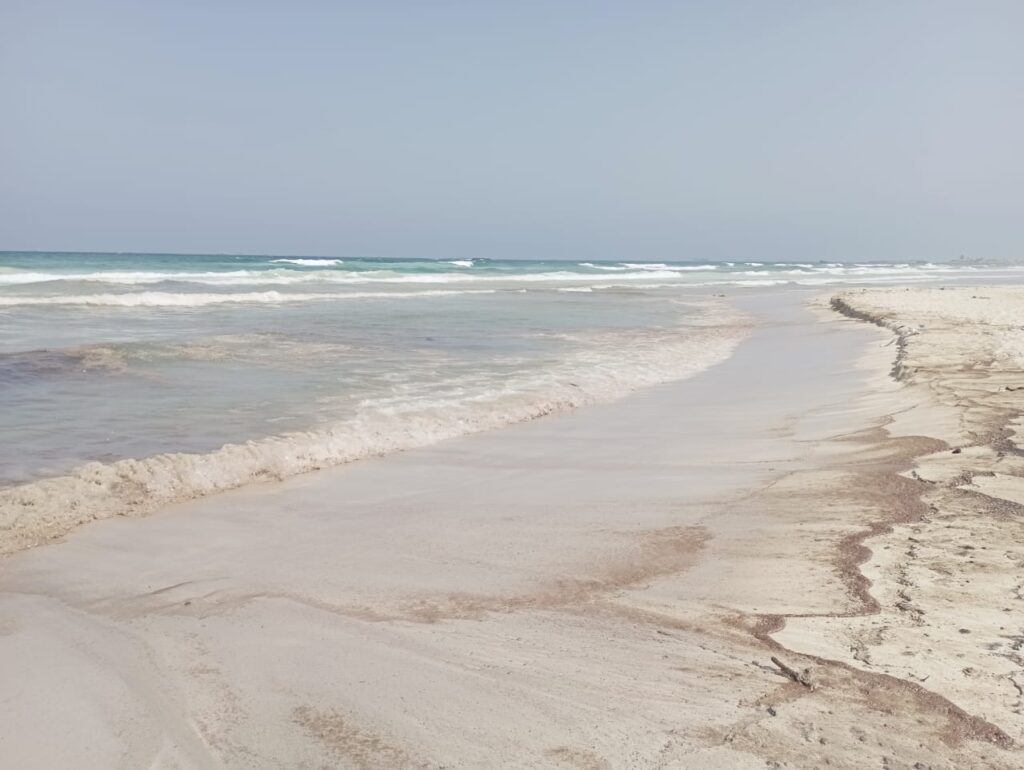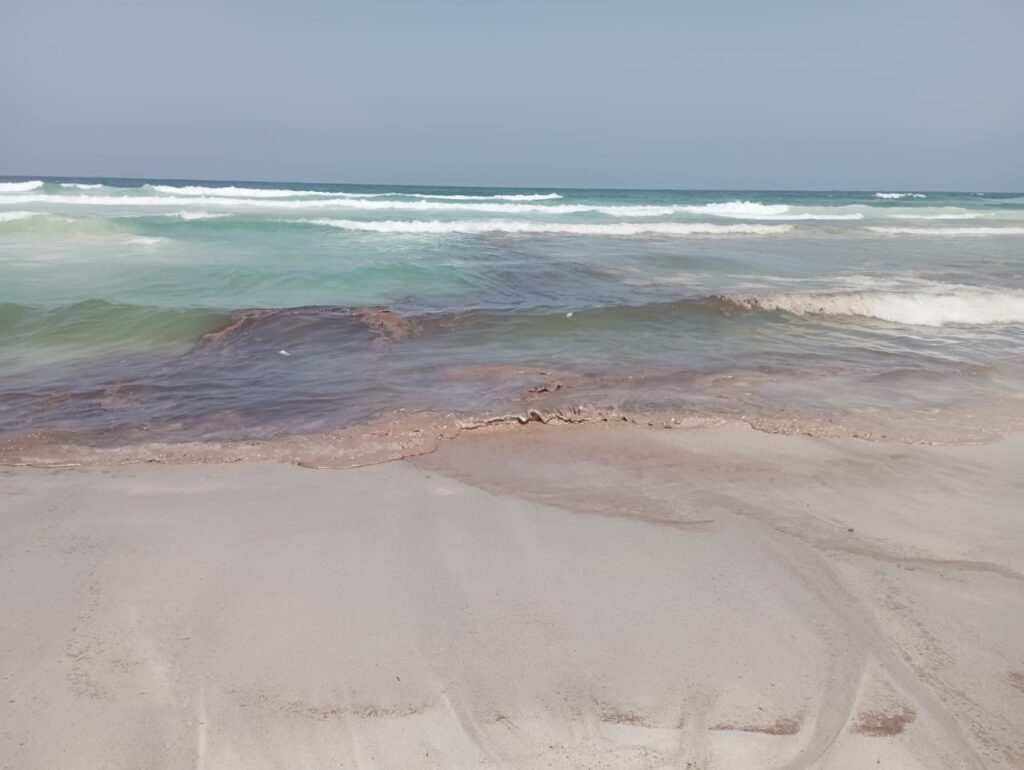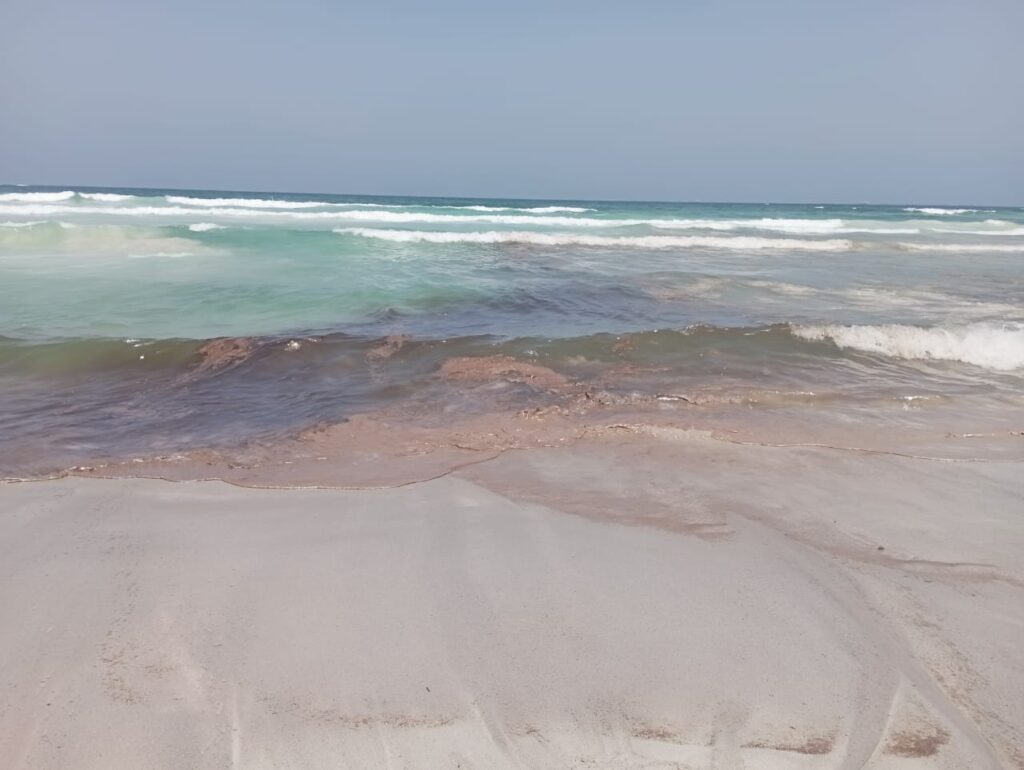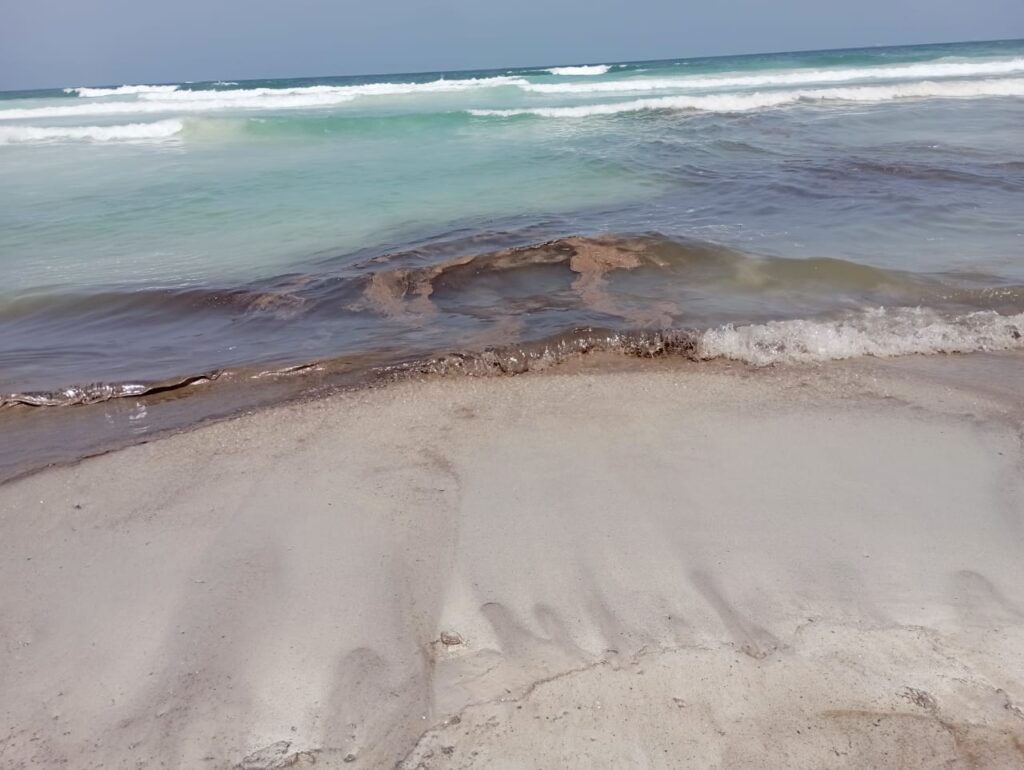On Thursday, April 18, 2024, “Food & Climate” platform noted an appearance of a large oil spill on Egypt’s Mediterranean coast in the Bitash area in Ajmi, Alexandria Governorate, does it threaten fish?
The area of this leak extended to approximately 1,000 square metres, and appeared to be fuel left over from boats and ships.
A resident of the area told (Food & Climate): “This is the first time I’ve seen something like this in here. I fear it will lead to the killing of the fish.”
However, what the citizen said is not just a frightful, baseless obsession, because when oil escapes into ocean or sea waters, it can cause major problems that adversely affect the food supply.
According to the U.S. Oceanic and Atmospheric Administration, “oil spills can damage your Marine life, ruin your day at the beach, and make seafood unsafe to eat.”
Fish and Marine organisms have been an important part of human diet for 40,000 years, and one billion people depend on these organisms for food.
Therefore, in January 2022, the International Shipping Regulatory Authority ruled that ships must reduce the sulfur content of cruise fuels in the Mediterranean, as part of wider efforts to decontaminate industry. According to PN Bloomberg.
An IMO spokesman said the maximum sulphur content of Marine fuels in the region will drop to 0.1%, most likely as of spring 2025.
Although the decision covers a much smaller area than required, it has several advantages, the most important being that it will help prevent more than 1,000 premature deaths and 2,000 childhood asthma cases per year.
More than 30,000 ships operate each year in the Mediterranean Sea, and it is also an important route for oil tankers for ships carrying consumer and other goods such as grain.
The Mediterranean has seen more than 750 oil spills in the last 4 years, until January, a recent report by ( SkyTruth) said.
(Food & Climate) platform tried to reach out to Egypt’s Ministry of Environment about how to deal with such incidents, but did not get a response until the report was published.
Dr. Abdulhakim Elwaer, Assistant Director-General of the Food and Agriculture Organization of the United Nations (FAO) and Regional Representative for the Near East and North Africa Region, said: For the Platform (Food & Climate) : “It is important now to realize that Egypt is the largest producer of natural fisheries and aquaculture in the Arab region and all of Africa.”
Egypt had invested heavily in that area, which provided jobs and a good export return in addition to supplying that food to the domestic market, he added.
However, the sector faces a number of challenges, the most important of which is water pollution, which comes from oil and fuel spills and other reasons.
There are laws and agreements governing this, such as the (Mar Paul Convention) and the Convention for the Protection of the Mediterranean Sea against Pollution, known as the Barcelona Convention, which protect seas from pollution worldwide such as the Mediterranean Sea, affecting biodiversity.
However, there are strict rules governing the quantities of oil that ships can carry when travelling or landing in ports to ensure that aquatic organisms are not exposed to the pollution that causes serious damage to biodiversity.
States, including Egypt, are implementing domestic standards to combat this by monitoring its coastline and monitoring such leakage through the ministry of environment.
There is much scientific evidence of how the oil spill in the sea can be eliminated with minimal damage, including the use of tools without adding chemicals that could increase pollution, Elwaer said.




